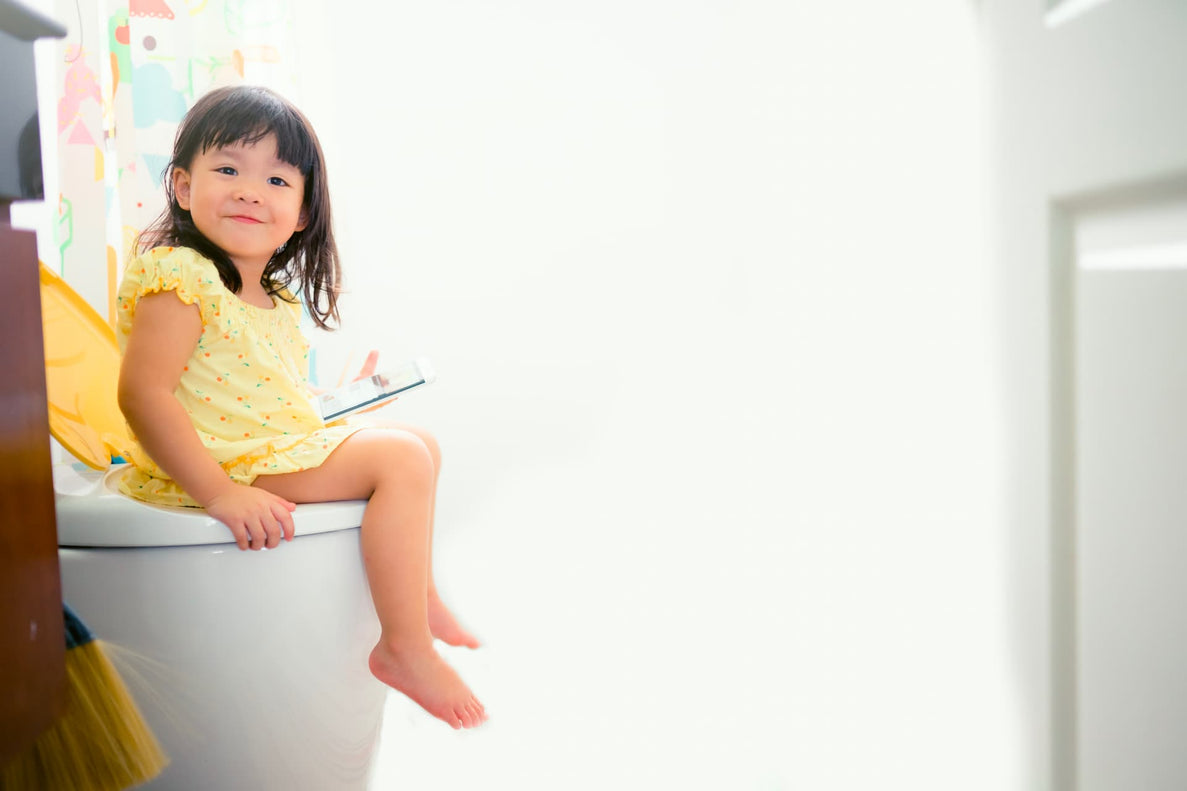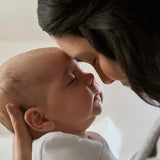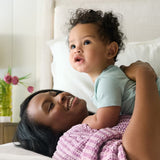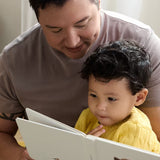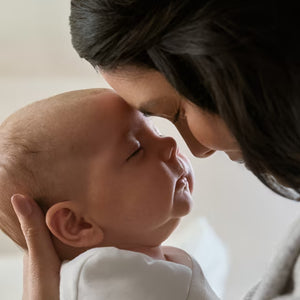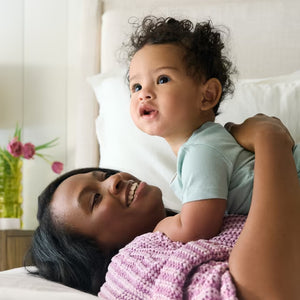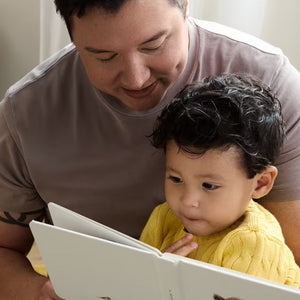If you’re like many toddler parents out there, you’ve probably wondered about when to start potty training. Maybe your friend’s child trained around this time, maybe your kiddo is starting to follow you into the bathroom more, or maybe you’re just sick and tired of changing diapers! The question begs to be answered – when is it the best time to start potty training?
With the limited studies available on potty training, it’s difficult to pinpoint the age at which a child should begin potty training. Research suggests that most children are ready and capable of potty training between 22 and 28 months, generally speaking. Want to see the research? Check out these studies published by the American Academy of Pediatrics and the Canadian Medical Association Journal. But the truth is, there are so many more important things that should be in alignment without age being a factor.
Let’s take a look at the signs for potty training readiness:
1. Your child should be healthy with no medical issues that could interfere with potty training.
If you have any doubts, check with your pediatrician. This also includes making sure that your child is a good sleeper! If your child isn’t getting the rest they need, it will be much more challenging for them to master the skills needed to use the potty. Not sure how to get sleep on track? Check out Cara's 5–24 Month Collection if your child is under 2, and her Toddler Sleep Training class for 2 through 4. She'll walk you through every step on your sleep journey to set sleep up for success before potty training.
2. It should be the right time for the family as a whole.
The changes that come along with potty training affect everyone in the household, not just your child. Wait to ditch the diapers until there are no other major changes or events taking place. These things might include moving to a new home, bringing home a new baby, or going through a divorce. If that means you miss the ideal age window, that’s perfectly okay!
3. YOU need to feel ready as your child’s teacher and coach!
Don’t discount your needs as you introduce this lifestyle change. Try to prepare yourself mentally and create a support system for the trying moments that can sometimes accompany potty training. Above all – have confidence. You can do this!
4. Your child should be showing signs that he or she is ready to start potty training.
Of all the varied methods and evidence available surrounding the topic, one thing remains consistent among them all – your child should possess certain signs of readiness before you begin. I like to break down the signs of potty training readiness into two categories: developmental and potty-related.
Developmental:
-
Basic communication skills (either verbal or non-verbal)
-
A good grasp on their gross motor skills (sitting, standing, walking)
-
Imitating the actions of adults
-
An ability to understand and follow simple (one to two step) directions
-
Taking pride in their accomplishments
-
An eagerness to please others
Potty-Related:
-
Staying dry for longer periods throughout the day, even sometimes naps or overnight
-
Asking for a clean diaper when theirs is wet or dirty
-
Hiding to have a bowel movement
-
Showing a general interest in the bathroom
-
Telling you when they have gone or are going in their diaper
-
Resisting diaper changes
There is a certain level of psychological readiness that needs to be present in order for potty training to be successful as well. Sometimes, even when your child ticks all the boxes above, you may run into challenges from an emotional standpoint. Please know that is in no way a reflection of your parenting skills, or something you’ve done or haven’t done. If that should happen, it is okay to press pause and come back at another time.
Still worried? I’d love to help ease some of the most common concerns I hear!
Worried about starting potty training if your kiddo still sleeps in a crib?
What if your child is starting to show the signs of potty readiness, but they are still sleeping safely and happily in their crib? Perhaps you’re wondering: “Do I have to move them to a toddler bed now? Do I have to wait and start potty training when they are older?” Actually, you don’t have to make that decision! Not much changes between potty training a child who sleeps in a crib and a child who sleeps in a bed. If you choose to eliminate all diapers (even for nights) at the same time, there are plenty of helpful techniques to still achieve success.
Worried sleep might be disrupted by potty training?
This is a very legitimate concern, especially after all the effort you’ve invested in getting your child sleeping through the night! The truth is, your kiddo’s sleep might be disrupted when you first begin potty training, just like sleep regressions might occur at other times, but rest assured that this is only temporary. Your kiddo’s strong sleep foundation will still be there when the potty training dust settles, typically within just a few days or less.
Worried about accidents?
Accidents are, without a doubt, one of the most frustrating parts of the potty training process. But we all make mistakes when we are learning new things! Accidents actually help promote learning. Studies show that each time we make a mistake, the brain is working to create new pathways (called synapses) to prevent us from making the same mistake in the future. Have your favorite cleaner on hand, take the accidents in stride, and know that they will soon be a distant memory!
Worried that your child is showing no interest in the potty yet?
Some children might not show an interest in the potty on their own, and that is totally normal. As with everything in parenting, it’s best to find ways to keep it fun and playful. Try to get some potty books that feature your child’s favorite character or an interactive feature like buttons with sound or flaps. Practice pretend play and have your child’s dolls and toys go to the potty. Let them choose some new décor to add to the bathroom to make the environment more inviting. Introducing the concept of the potty can start at any age, and having some positive exposure without pressure to do anything themselves is the best way to get the ball rolling.
As a mom myself, I know how much pressure we put on ourselves to make the best decisions for every aspect of our child’s development, potty training being no exception. Repeat after me, you are not part of a study, real life happens, and every child is different. You’ll have the most success when the timing seems right for the whole family instead of conforming to an ideal age window.
If you feel like you could use some additional guidance in your potty training journey, be sure to follow me on Instagram for tons of free resources. To take it a step further, you can also check out my online courses. Taking Cara Babies families can use code TCB20 to save 20% off any course you choose!

